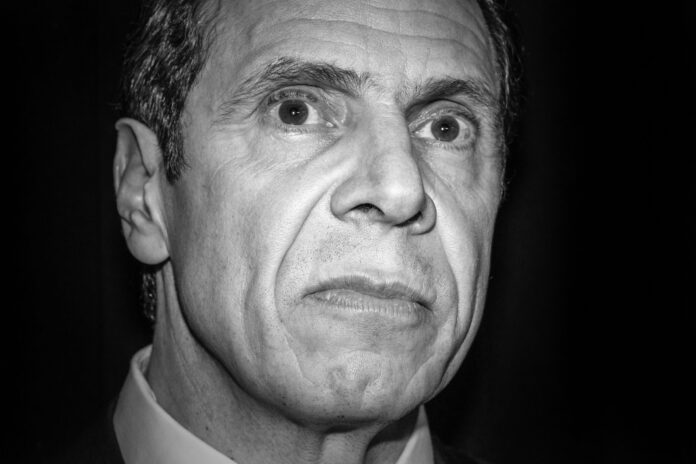
The series that is the COVID-19 pandemic, something that has yet to reach its finale, features an eccentric cast of federal characters, each rating on a limited level of competency. Who could possibly forget the comments made by our own Mayor Goodman on CNN’s Anderson Cooper 360?
However, a rising star was born in the midst of climbing death rates and even higher case numbers: Gov. Andrew Cuomo of New York. When his state’s capital city, New York City, served as the world’s epicenter for the virus in early 2020, Cuomo brought forth measures to keep his citizens safe. His actions as a federal authority in an era lacking in that level of proficiency had been refreshing to the masses.
Soon after, the world was introduced to the term ‘Cuomosexual,’ which blasted onto every merchandise surface you could imagine. It was even endorsed by Trevor Noah and Ellen DeGeneres. New York-based brand, Lingua Franca, had introduced cashmere sweaters with the term alongside others with ‘Cuomo for President’ stitched across the chest for $400.
Late 2020 had him publishing “American Crisis: Leadership Lessons From the COVID-19 Pandemic” for $5.1 million, detailing the “riveting story” on how he completely conquered COVID-19. In 2021, he earned the Emmys’ Founders Award for his press conferences, in which he repeatedly referenced A.J. Parkinson, someone who does not exist.
He was known as a “cool guy in a loose mood,” regularly making appearances on his brother’s (Chris Cuomo) CNN program. Many Democrats had even considered ditching prominent Democratic Presidential candidate, Joe Biden, in favor of the New York Governor, truly showcasing the peak of Andrew Cuomo’s political career at the time.
Despite his promising reputation, the curtain soon fell. In a series where he had played a hero, he had soon become a villain. That’s when the infamous “nursing home scandal” hit the waters.
Cuomo had made it a point to hide the COVID-19 nursing home death tolls, preventing state officials from releasing the information for months to lawmakers and the public. When lawmaker Ron Kim went after the cover-up, Cuomo had allegedly threatened to destroy him.
By December 2020, the New York state assembly was already orchestrating an impeachment probe, and Cuomo had no intentions to resign from the position he had held for a decade. Additionally, a tsunami of new information would soon sweep over everything the public had formerly thought about the governor.
Lindsay Boyan had come out with a sexual harassment allegation as well as 10 additional women came forward with their own stories.
As the impeachment investigation began and charges were pressed, Cuomo declared the scandal as a case of “cancel culture,” a term that defines a rising mentality of necessary accountability for these types of allegations. It adds to the concept of “she’s doing it for fame, for attention, for money,” which further sets us back when handling these offenses.
Amid the chaos, on Aug. 10, after months of being asked to resign, Andrew Cuomo has officially stepped down from his position as governor of New York.
His resignation has set the tone for movements such as #MeToo and Time’s Up. The main attribute of the situation boils down to accountability and consequence, with a major federal figure being held accountable for his disturbing actions towards women. This also delivers hope for other major figures in a variety of industries heading down the same pathway.
Hopefully, this newfound sense of urgency towards accountability can serve as a lesson to other powerful figures as well as establish social responsibility. Quite honestly, the “time’s up.”
